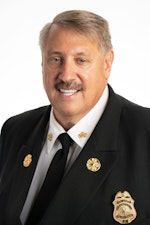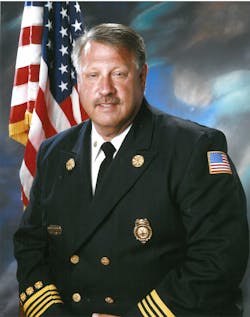Here is a quiz: What do the Exxon Valdez oil spill, the Three Mile Island nuclear power plant core meltdown, the Chernobyl nuclear power plant explosion, the Space Shuttle Challenger explosion and the 1999 crash of American Airlines 1420 in Little Rock, AR, all have in common with running EMS calls? In all these disasters, sleep deprivation was listed as either the primary cause or a contributing cause, and we all know that sleep deprivation can have a serious impact on those who run EMS calls.
Tragic examples
With the Exxon Valdez, the crew had just put in a 22-hour shift loading the oil onto the ship, and the third mate was allegedly sleeping at the helm, leaving him unable to turn the boat back into the shipping lanes in time to avoid disaster.
The engineers involved in the Chernobyl nuclear power plant disaster had been working more than 13 hours when the accident occurred. A total of 28 people died from radiation poisoning in the first few weeks, and according to the World Health Organization, the long-term effect will never be known.
The Three Mile Island accident has been attributed to human error due to sleep deprivation, with workers failing to notice as the plant lost coolant, eventually resulting in the overheating of the reactor's core, according to the United States Nuclear Regulatory Commission.
Following the Space Shuttle Challenger explosion, it was discovered in the investigation that some NASA managers involved in the launch had only slept two hours before arriving to work at 1 a.m. that morning. Although not the sole cause of disaster, the lack of sleep “raises serious questions when it jeopardizes job performance, particularly when critical management decisions are at stake,” noted a Presidential Commission that investigated.
In 1999, American Airlines Flight 1420 overshot the runway at the Little Rock National Airport, killing 11, including the captain, and injuring the first officer, the flight attendants and 105 passengers. Severe thunderstorms played a role, but the National Transportation Safety Board (NTSB) also determined that "impaired performance resulting from fatigue" was involved.
The EMS connection
Spend any time running EMS calls on an engine or ambulance and you can find yourself sleep-deprived. Work in a busy urban environment and you will undeniably know what sleep deprivation feels like.
That is why I was interested to learn that the National Highway Traffic Safety Administration (NHTSA) Office of Behavioral Safety Research recently awarded a contract to the National Association of State EMS Officials (NASEMSO) and the Department of Emergency Medicine at Carolinas HealthCare System (CHS) to conduct a study looking at the sleep health and fatigue of care providers in EMS and the impact fatigued workers can have on crew and patient safety. The study is expected to take about two years.
I have no doubt that the study is going to validate what many of us already know. The more EMS calls you run in a 24-hour shift without sleep, the more opportunity you have to make a mistake. Some studies have shown that 17 hours awake is equivalent to a blood alcohol content of 0.05. If you have been awake more than 21 hours, your blood alcohol equivalent can reach 0.08. At this point, your judgment is significantly impaired.
I was once so sleep-deprived that I experienced hallucinations. I found myself driving on the wrong side of the road, and after getting back on the right side of the road, I could not focus my eyes and every headlight coming at me was bouncing up and down.
What many people do not realize is that a lack of sleep—especially on a regular basis—is associated with long-term health consequences, including chronic medical conditions like diabetes, high blood pressure and heart disease.
Other professionals have figured it out. Truck drivers are only allowed to drive 11 hours during a 14 consecutive hour on-duty period. Once they reach 11 hours, they must be off duty for another 10 consecutive hours before driving their truck again. The airline and shipping industries have similar regulations. Additionally, medical residents are capped at an 80-hour workweek and no more than 16 hours in one day.
Get some rest
If you work a 24-hour shift, hopefully your employer allows you to lie down and get some sleep during the workday when you are not running calls, training or doing house chores. The few hours of sleep you get during the day may really come in handy when you’re running nothing but calls after midnight and having to make life-and-death decisions.

Gary Ludwig
GARY LUDWIG has served in three fire departments over his career: St. Louis, Memphis, and Champaign, IL. His fire, EMS and rescue career spanned a total of 46 years, and he has been a paramedic for over 44 years. Ludwig served as president of the International Association of Fire Chiefs in 2019-20. He has a Master’s degree in Business and Management, has written over 500 articles for professional fire and EMS publications and is the author of seven books.
Connect with Gary
Email: [email protected]
Facebook: Gary Ludwig
Twitter: @ChiefGaryLudwig
Website: garyludwig.com






